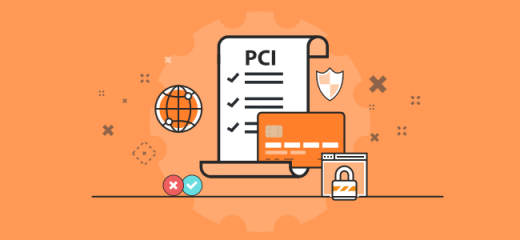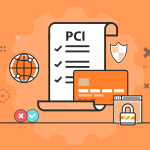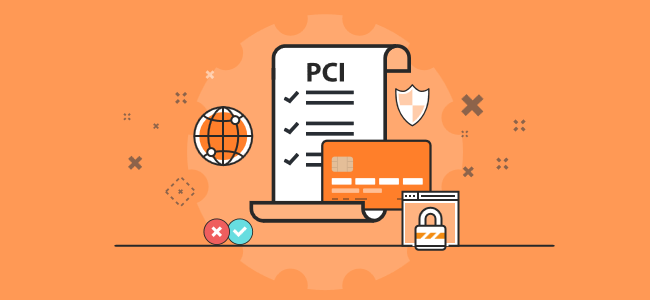Why Is PCI Compliance Important for Every Merchant?
August 27, 2016

PCI compliance is mandatory for every eCommerce merchant that accepts credit or debit card payments on their website. All information entered by customers is sensitive data, so it must be well-protected.
The Payment Card Industry Data Security Standard (PCI DSS) provides steps that all merchants who process card payments, store or transmit credit, debit, or prepaid card information need to follow to provide secure transactions. The main purpose of the PCI DSS is to reduce the risk of debit and credit card data loss. It suggests how this could be prevented, detected, and how to react if potential data breaches occur. It provides protection for both merchants and cardholders.
It’s important for customers to know your website is secure. They use their debit or credit cards to purchase products or services and risk financial losses. There is also an identity theft problem. The number of frauds in recent years has grown, so you have to make sure that sensitive data on your website is protected.
Make data secure with PCI compliance
Merchants store cardholder data and sensitive authentication data on their websites, so it needs to be secure and kept private. Technology is developing so fast that there is a growing number of fraud activities and businesses face many challenges. That’s why every merchant or payment service provider with card payment solutions must be PCI compliant. Doing business should be based on trust (between merchants and customers) and PCI compliance helps improve the level of security.
Becoming PCI compliant is connected with undergoing a PCI auditing procedure to meet the requirements of the PCI Data Security Standard. It depends on the amount of processed transactions per year and it is separated into 4 different levels. Level 1 is for merchants that process the highest amount per year, and level 4 is for merchants that process the smallest amount.
PCI compliance applies to both the administrative and technological side of running a business and is updated regularly. PCI is an ongoing process and responsibility, so you need to add a security strategy to your business. Analyze your website and update it regularly to make sure that all vulnerabilities that could expose cardholder data are fixed.
PCI DSS guidelines include 12 requirements for merchants and payment processors, grouped into six areas. They are:
- Build and maintain a secure network and system
- Protect cardholder data
- Maintain a vulnerability management program
- Implement strong access and control measures
- Regularly monitor and test networks
- Maintain an information security policy
Businesses of all types, small and large, suffer from data breaches. Attackers focus on any vulnerabilities. They know the majority of small businesses don’t have enough protection and many times don’t even implement basic security solutions. Large players, on the other hand, can afford to have expensive security.
Eliminate the risk
When you choose a payment gateway such as SecurionPay, you don’t have to be PCI compliant. The payment provider will take care of this as well as payments and data security. Even if the information is entered on your website, it is protected and encrypted by the provider. There are many things to consider when choosing a payment gateway, but you want to choose the one with the highest PCI level to make sure payments processed on your page will be better protected. Make a smart decision and give your customers peace of mind.
One of the most important recommendations is if you don’t need cardholder data, don’t store it. Some payment gateways use advanced technologies, such as tokenization, so you can be certain that sensitive data won’t touch your server.
When you run an online business, security is a crucial issue. You need to do everything to decrease the risk of payment and data fraud that could damage your brand’s reputation. Data breach is a serious problem and it could cause a loss of sales and customers that will never return to your site. It also comes with potential financial liabilities such as fines, penalties, fees or higher costs of compliance in the future.
As you can see, being PCI compliant comes with many benefits. It’s crucial to your customers’ security and affects your business reputation.
Business & Finance Articles on Business 2 Community
(18)





